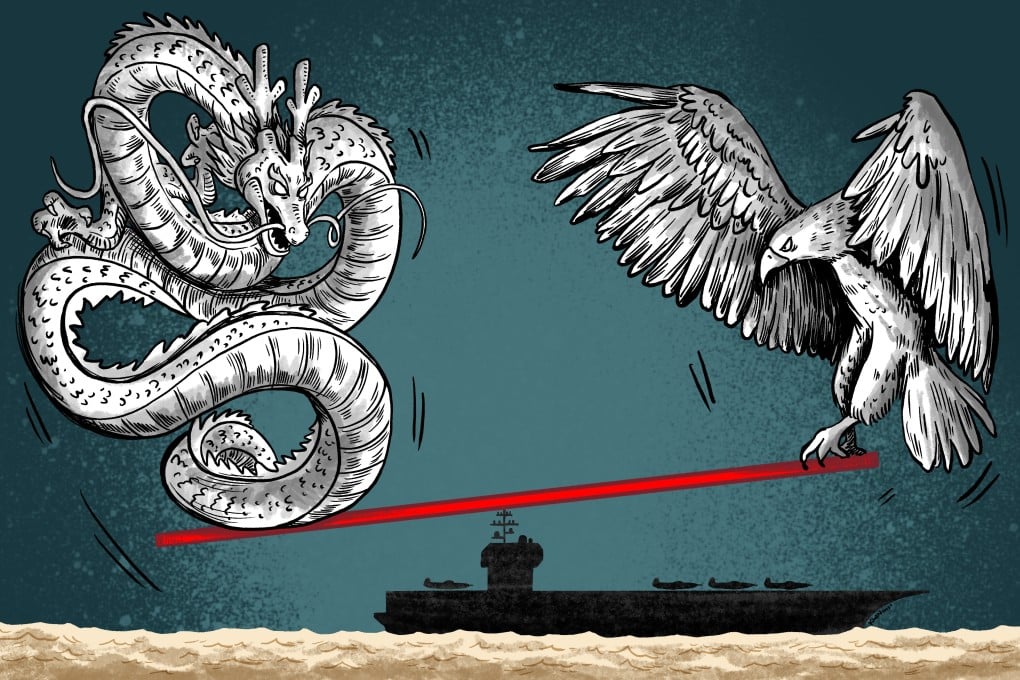Advertisement
Shangri-La Dialogue puts focus on shifting US-China military balance
- Asian countries are likely to feel pressed between the rivals, with defence chiefs from both countries ready to take firm stance
- In an atmosphere of rising tensions, including heightened military activity in the region, is the momentum tipping in China’s favour?
Reading Time:8 minutes
Why you can trust SCMP
30

Amber Wangin Beijing
One of the most important security conferences on the international calendar gets under way for the 20th time in Singapore on June 2, bringing together defence ministers, military personnel and policy watchers. In the final of a three-part series, Amber Wang compares US and China military power.
The mood of most Asian countries towards growing US-China rivalry was perhaps best summarised by Singaporean Prime Minister Lee Hsien Loong, who told a previous Shangri-La Dialogue that “when elephants fight, the grass is trampled. When elephants make love, the grass also suffers.”
With the defence chiefs of the world’s two most powerful militaries attending this year’s forum, the regional officials and security analysts heading to Singapore at the weekend may well have Lee’s words from 2019 on their minds.
Whether US Defence Secretary Lloyd Austin and his Chinese counterpart General Li Shangfu meet at the forum is one of the big questions hanging over the event. The US said on Monday China had declined a meeting, while Beijing urged Washington to “create conditions” for dialogue.
Whatever happens, their fellow attendees are likely to feel pressed between the weight of two powerful sides as they lay out their positions on the hottest issues concerning peace in the region and beyond.
In an atmosphere of rising tensions between China and the United States on a range of issues, including their growing military presence in the region, Asia’s premier defence summit will be trying to make a cool assessment of the balance of power between the two forces.
Advertisement
Select Voice
Choose your listening speed
Get through articles 2-3x faster
1.1x
220 WPM
Slow
Normal
Fast
1.1x